NDING EMOTIONAL INTELLIGEN CE IN TEENAGERS

CONTENTS 01 Introduction to Emotional Intelligence 02 The Teenage Brain and Emotions 03 Tips for developing emotional awareness 04 Exercises to practice emotional regulation and empathy 05 Quizz
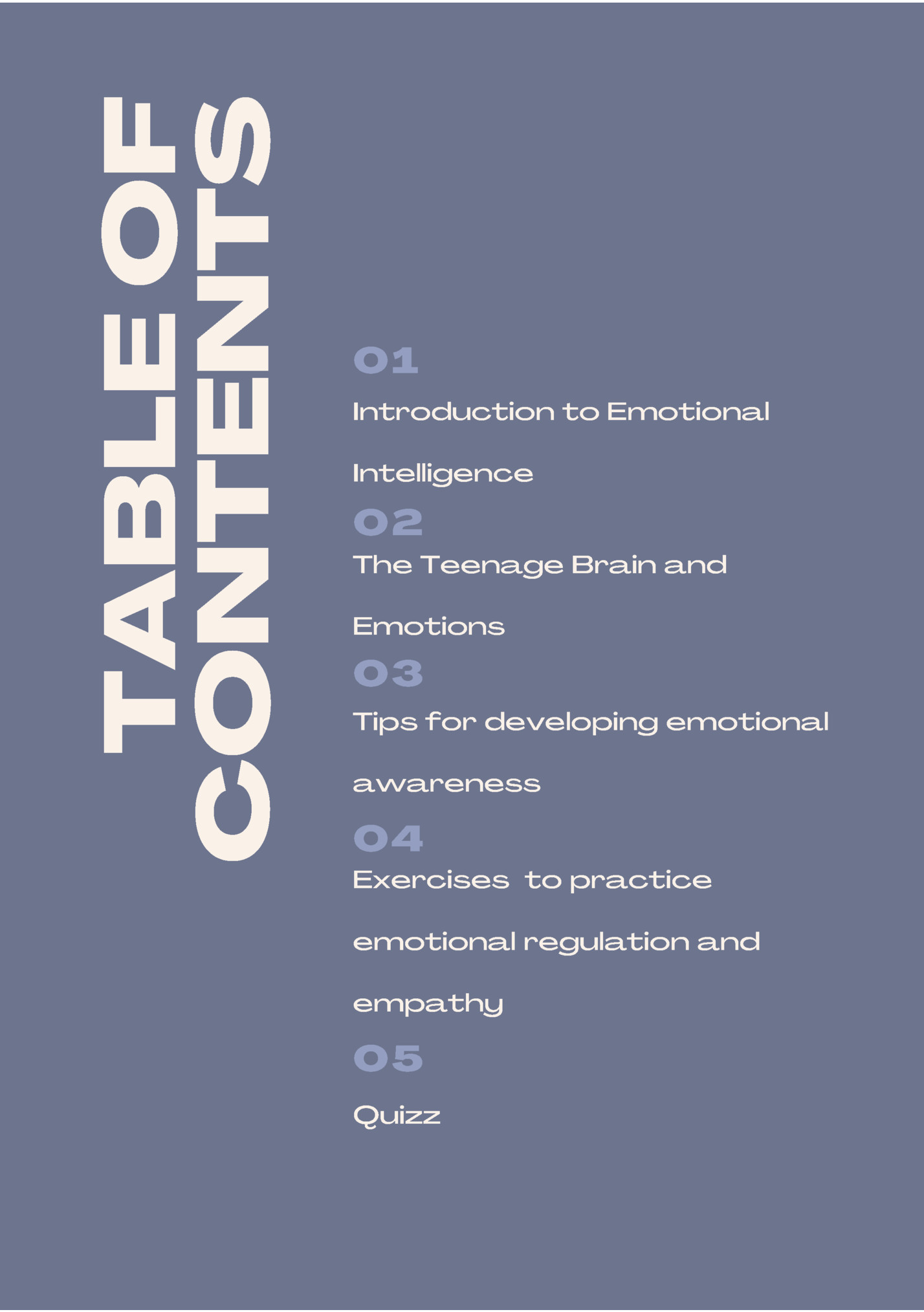
WHAT IS EMOTIONA L INTELLIGEN CE? You may have heard people discussing intelligence, but often, they are referring to “IQ,” which stands for intellectual quotient. IQ helps us gauge how well a person performs academically. However, it’s important to recognize that there is much more to a person than just their academic abilities. Various types of intelligence exist, one of which is emotional intelligence. Emotional intelligence is best defined as the ability to understand, utilize, and manage our emotions. While IQ can predict academic success, emotional intelligence can indicate how effectively we manage our emotions in different situations. In this booklet, you will learn more about emotional intelligence (EQ), discover tips for emotional regulation, and have the opportunity to assess your own emotional intelligence level by taking a quiz.

THE TEENAGE BRAIN AND EMOTIONS Common emotional challenges for teenagers Coping with stress Stress is something everyone, including teenagers, struggles with. The most common stress triggers include the pressure of schoolwork, preparing for examinations, being bullied, arguing with parents, and so on. Sometimes dealing with stress can be too much and cause a mental illness, so it is important to learn to deal with stress. Teenage Social Problems At this age, teenagers tend to explore many things, which may lead to social problems. Some common issues are drug abuse, peer pressure, cyberbullying, fear of being judged, and not being willing to obey. Teenage Emotional Problems During adolescence, hormones tend to change, which affects teenagers physically and emotionally. Teenagers deal with mood swings, loss of empathy, and not being able to recognize their own emotions.
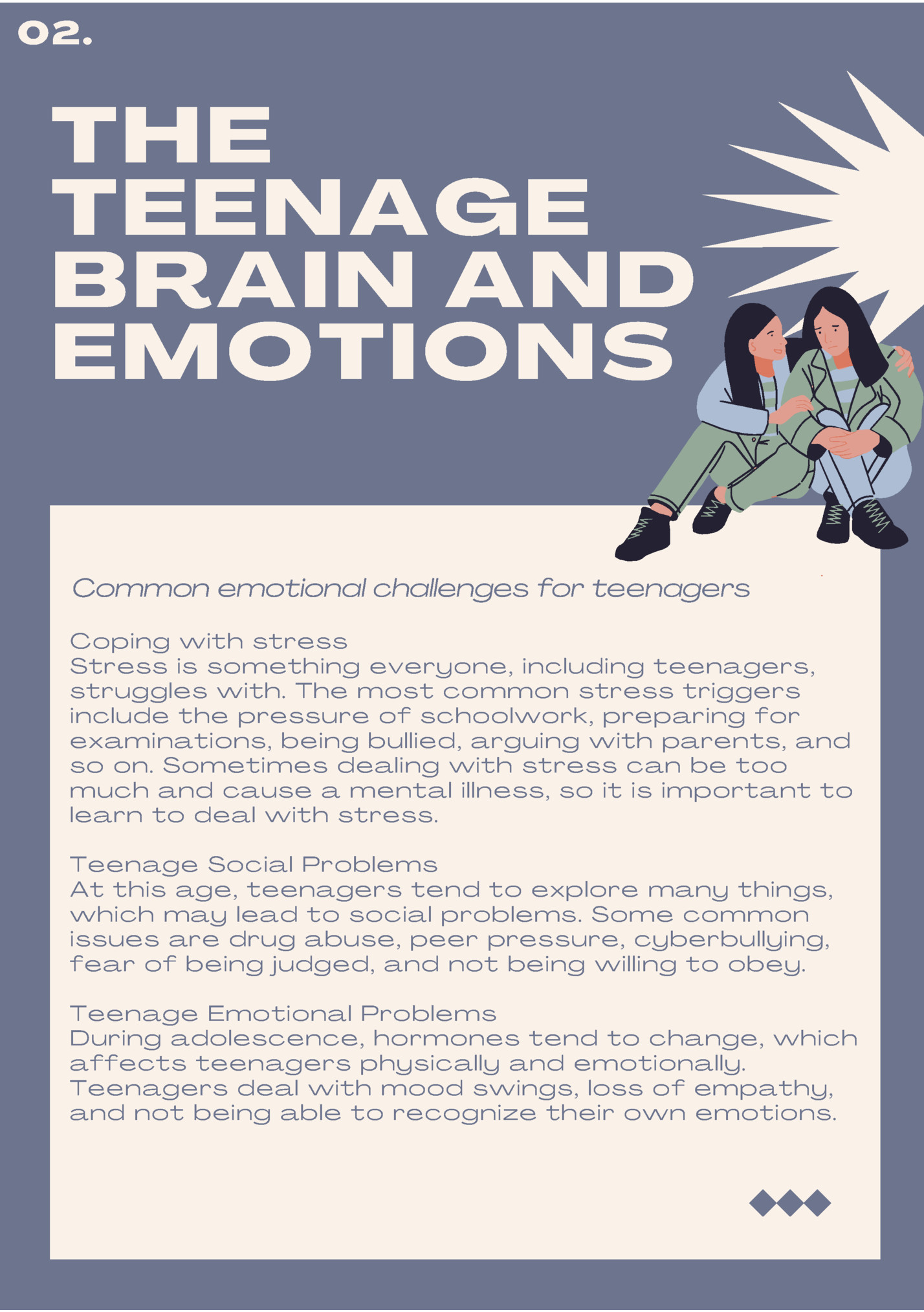
TIPS FOR DEVELOPIN G EMOTIONAL AWARENES S RECOGNIZING YOUR EMOTIONS AND NAMING THEM ASK FOR FEEDBACK Can you identify your emotions right now? In stressful situations, what feelings typically arise? How would you like to respond? Pausing to recognize and regulate your emotions is key to developing emotional intelligence. Assess your emotional intelligence by seeking feedback from managers, colleagues, or family on your adaptability, empathy, and response to challenges. Their insights may be tough but valuable for growth. READ LITERATURE Reading literature with complex characters can boost empathy by offering insight into others' thoughts, motivations, and actions, enhancing social awareness.
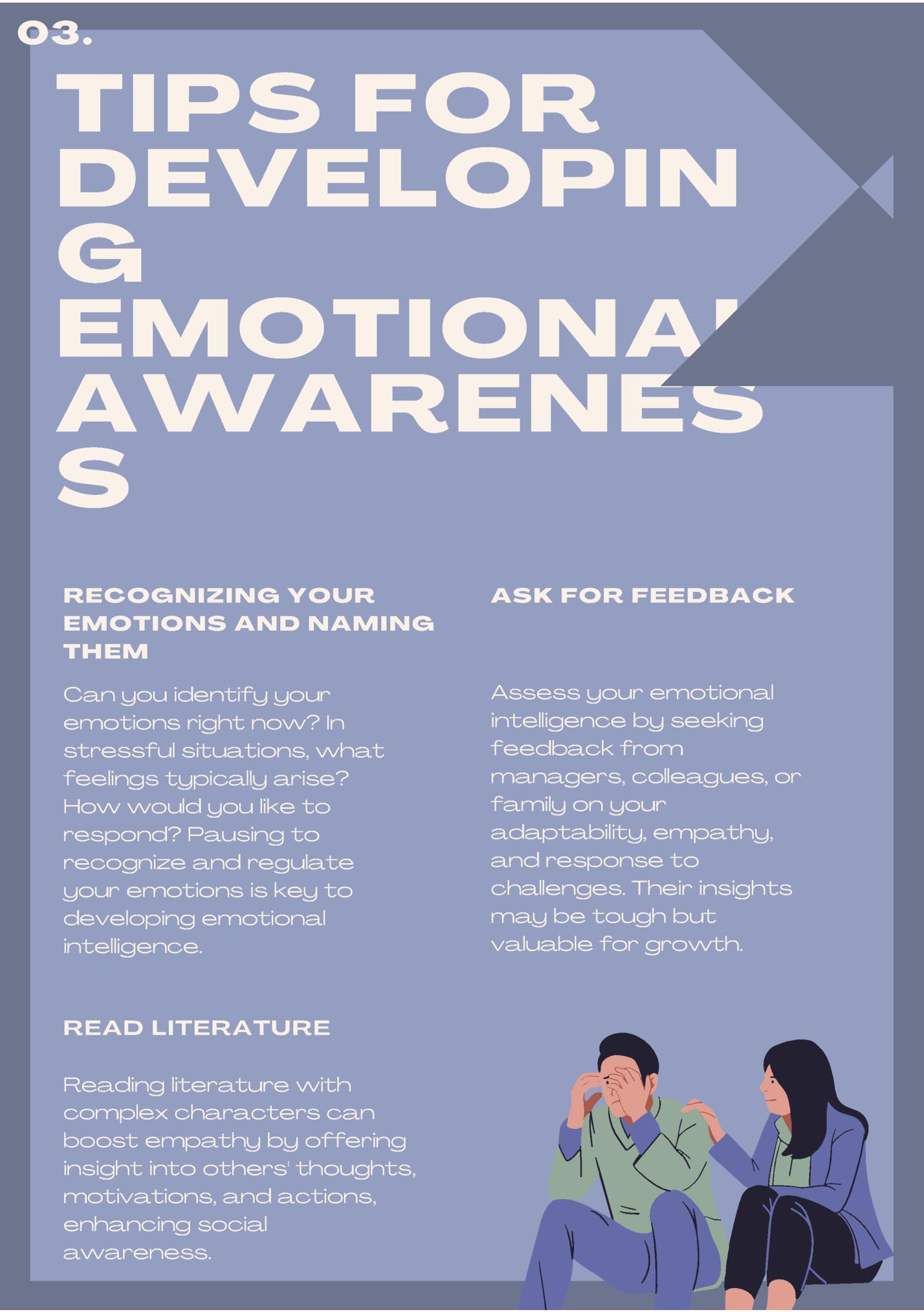
EXERCISE S TO PRACTICE EMOTION AL REGULATI ON AND EMPATHY ACTIVE LISTENING PERSPECTIVETAKING Fully engage by eliminating distractions, maintaining eye contact, and asking open-ended questions to deepen understanding. Step into someone’s shoes by learning about their background, visualizing their experiences, and reflecting on insights. JOURNALING ABOUT EMOTIONS EMPATHY MAPPING Write daily about emotions, interactions, and patterns to enhance self-awareness and empathy. Visually organize what a person says, thinks, feels, and does to better understand their perspective.
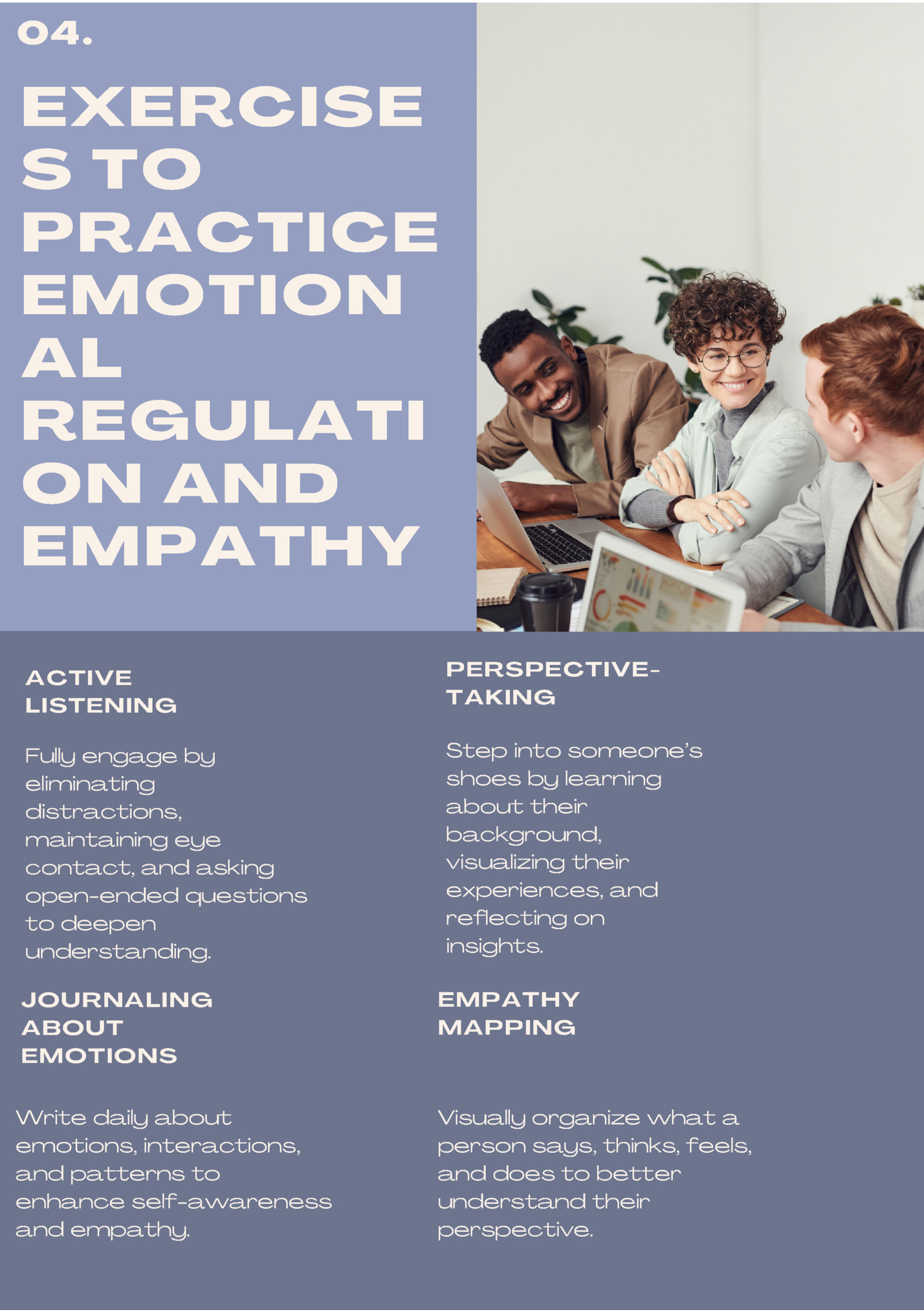
QUIZZ TO MEASURE YOUR EMOTIONL INTELLIGE NCE LEVEL
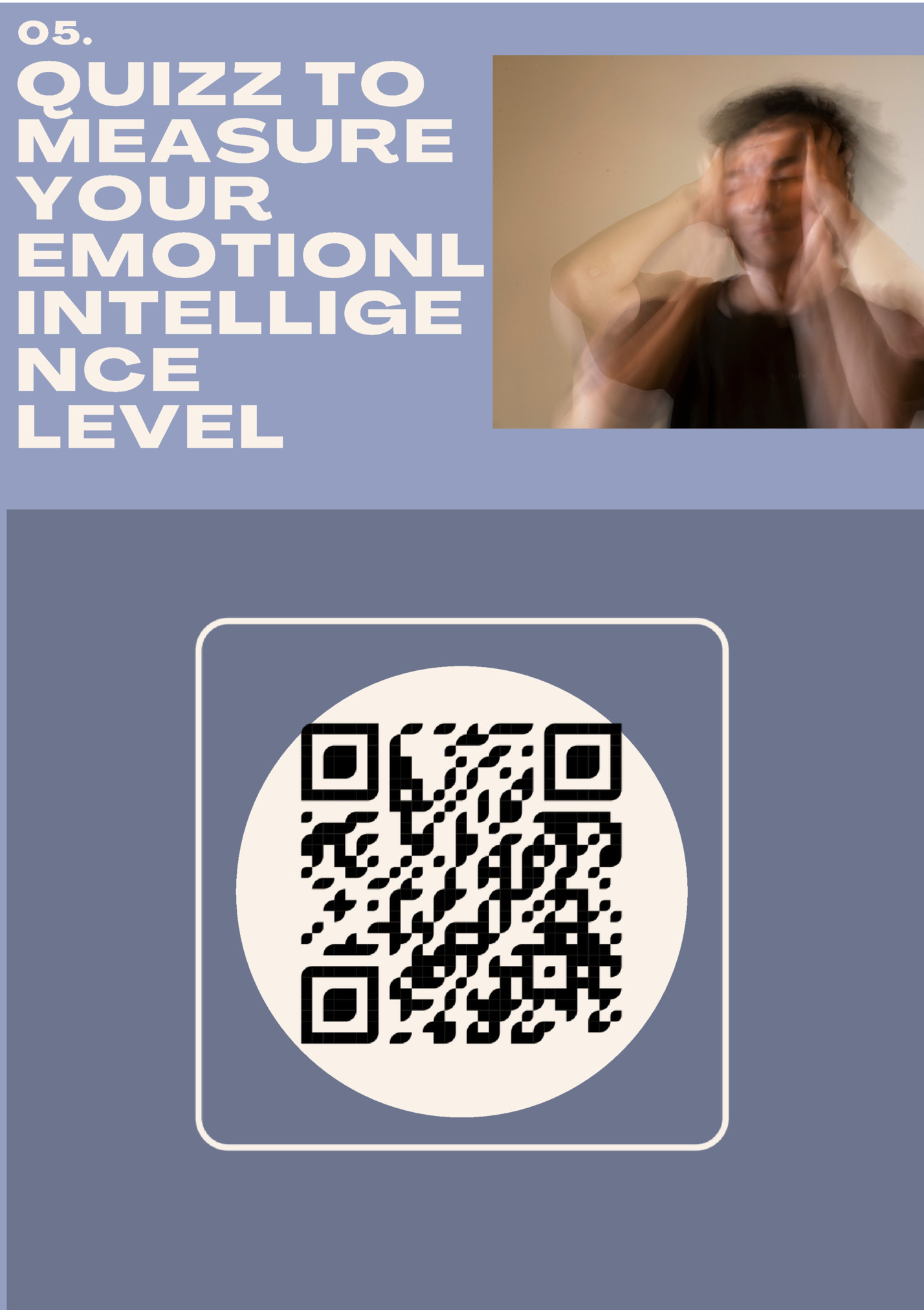
INTELLIGENCE

Fleepit Digital © 2021